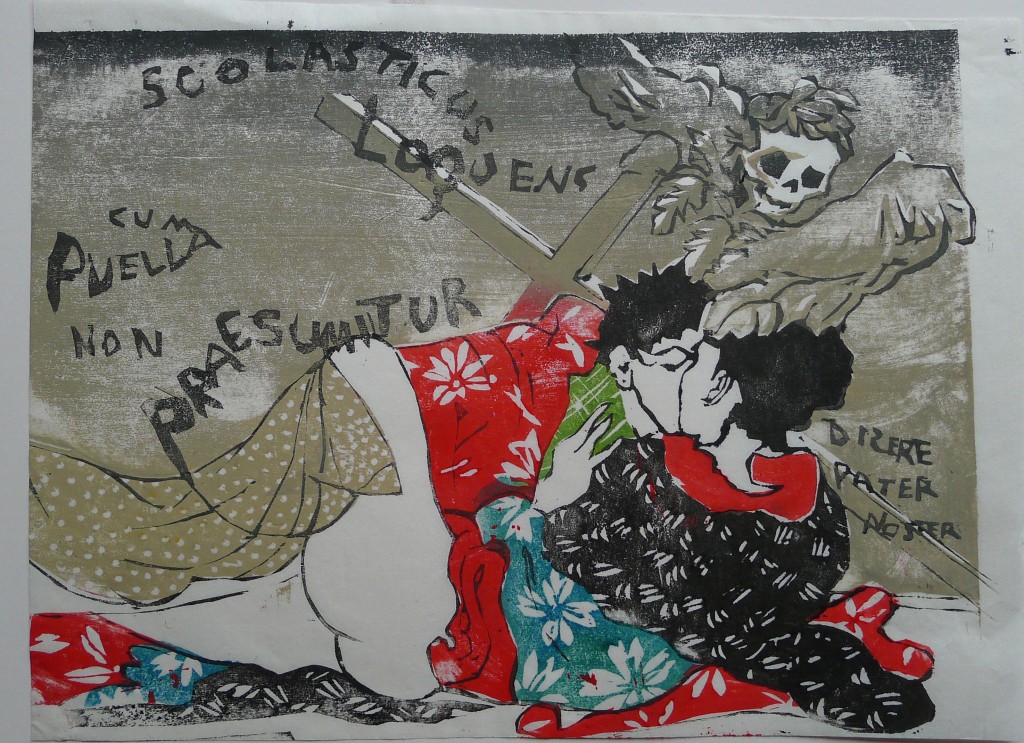One of Dominic Hills’s most recent prints illustrates a self-explanatory Latin catchphrase, ‘Scholasticus loquens cum puella non praesumitur dicere Pater noster’ [A student talking with a girl doesn’t think of reciting ‘Our Father who art in heaven’].
The phrase apparently originated with the great fourteenth-century Italian jurist Baldo degli Ubaldi, who used it to convey what it is to be presumed guilty. As well as a student, different versions of the joke have a cleric, a scholar or simply a man talking with the girl.
As is the way with such witticisms, it took on a life of its own. In France, it occurs in one of the late sixteenth-century tales of Noël Du Fail, in which an apothecary gives his wife some medicine to sweeten her breath before a ball – yet conveniently when one of her dance partners starts whispering sweet nothings in her ear (cue the Latin phrase) it transpires the supposed breath freshener was in fact a laxative, leading her to make a rapid exit from the dance floor. The early seventeenth-century comedian known as Bruscambille (see previous posts) borrows the expression from Du Fail in a speech of his in the form of a mock court case. The comic sees his opponent whispering into the ear of a female friend, naturally presumes he isn’t saying the Lord’s prayer, yet wonders if his actions will match his words or whether he will end up being accused, like another man, of ringing his bells when the parishioners don’t want to come.
Given the way the Latin phrase itself inspired different versions, it is strangely appropriate that Dominic Hills’s version:
should itself be a close adaptation (with a religious twist) of a piece of Japanese shunga:
Kitagawa Utamaro (d. 1806), Lovers in the upstairs room of a teahouse, from Utamakura (Poem of the Pillow), c. 1788. Sheet from a colour-woodblock printed album. © The Trustees of the British Museum.


